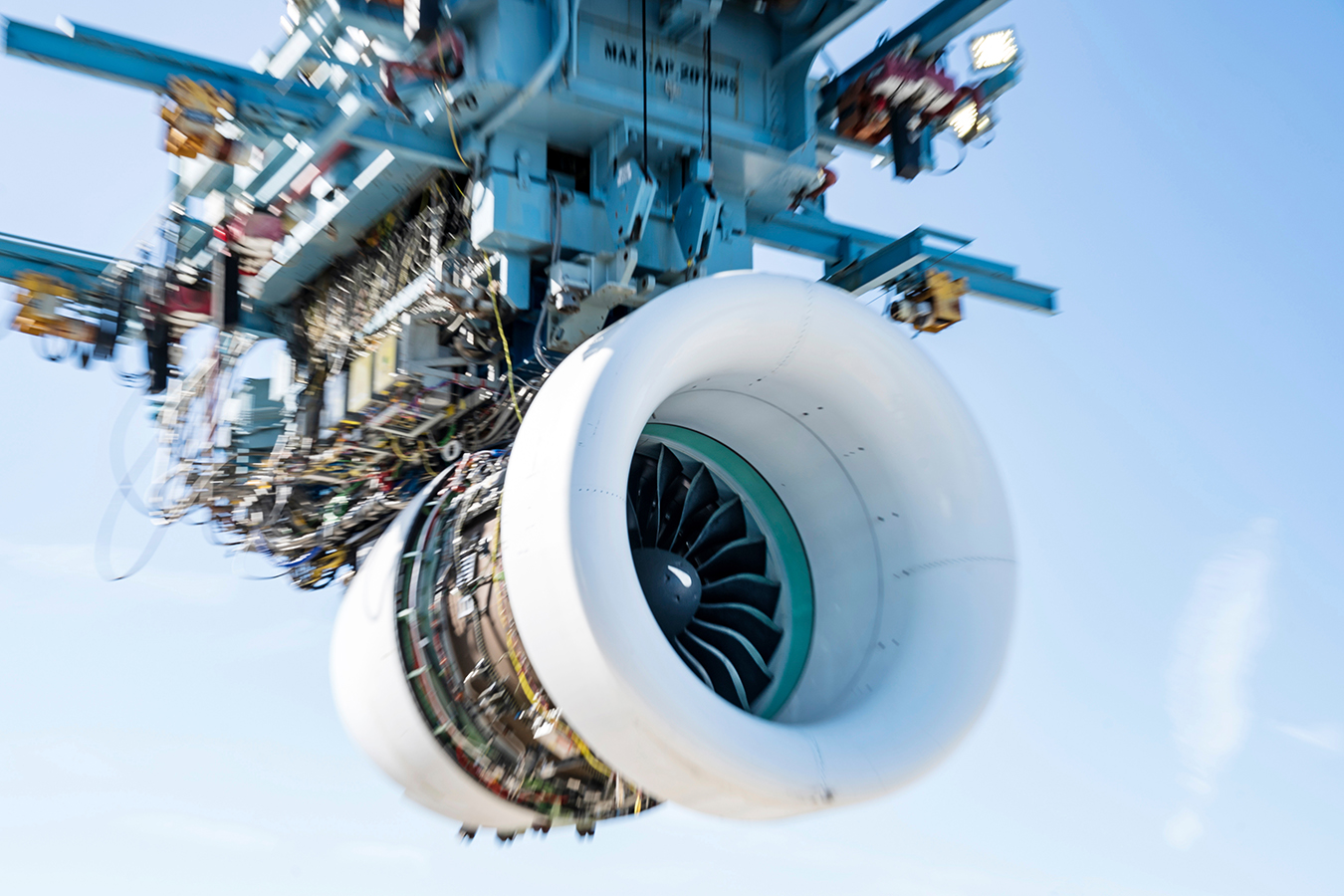Stay Up to Date
Submit your email address to receive the latest industry and Aerospace America news.
The Gas Turbine Engines Technical Committee works to advance the science and technology of aircraft gas turbine engines and engine components.
The year continued ground and flight testing of gas turbine engines and aircraft for operation on 100% sustainable aviation fuels. SAFs are derived from nonpetroleum-based fuel sources. Select conversion processes are currently approved for up to a 50% blend with traditional petroleum-based jet fuels.
In March, Pratt and Whitney of Connecticut announced the GTF, or Geared TurboFan, Advantage engine completed thrust transients, starting and operability testing at Pratt’s facility in West Palm Beach, Florida. The 151-kilonewton-thrust engine began FAR33 certification testing in July. In June, Pratt and Whitney and Embraer completed ground and flight testing on an E195-E2 aircraft, in which one of the two GTF engines ran on 100% SAF. Also in June, Pratt and Whitney Canada, headquartered in Québec, tested two PW127M turboprop engines fueled with 100% SAF. The engines powered an ATR 72-600 aircraft for two hours.
In March, GE Aviation of Ohio ground tested performance and operability of the Passport, an engine for long-range bizjets, on 100% SAF. The Passport test followed ground testing by Safran of LEAP-1A engine emission performance in February and ground testing and a passenger flight of several CFM LEAP engines in October through December 2021. In June, Airbus flight tested an H225 helicopter with 100% SAF in both Safran Makila 2 engines, following flight testing with a single engine in November 2021. These campaigns follow numerous tests by all of the major engine manufacturers and represent concerted effort to work toward certification of 100% SAF for commercial flights, increased availability of SAF and continued decarbonization of commercial air travel.
Several engine families reached major milestones. In August, Honeywell of Arizona marked the 50th anniversary of its TFE731 turbofan engine family, with 13,000 engines produced, 9,400 engines in service and a combined 108 million flight hours. In July, GE Aviation announced that the CF34 family exceeded 200 million flight hours since 1983 across 8,000 engines in bizjet and regional commuter aircraft. In August, Rolls-Royce of the U.K. celebrated the Trent XWB-84 high-bypass turbofan reaching 10 million flight hours since its 2015 entry into service. The Trent XWB-84 powers Airbus’ A350 eXtra Wide Body aircraft and can operate on flights longer than 18 hours.
In a major step toward electrification of air travel, GE Aviation announced in July completion of high-altitude testing of a megawatt-class, multi-kilovolt hybrid electric propulsion system in NASA’s Electric Aircraft Testbed, or NEAT, in Ohio. NEAT tests full-scale systems at simulated high altitudes up to 45,000 feet, critical conditions for electrical system performance. GE tested two complete hybrid-electric systems, including power controls, electric motors and generators, power converters and power transmission. The tests, which began in 2021, targeted development toward a planned flight demonstrator and future single-aisle commercial aircraft emissions reduction.
Stay Up to Date
Submit your email address to receive the latest industry and Aerospace America news.




